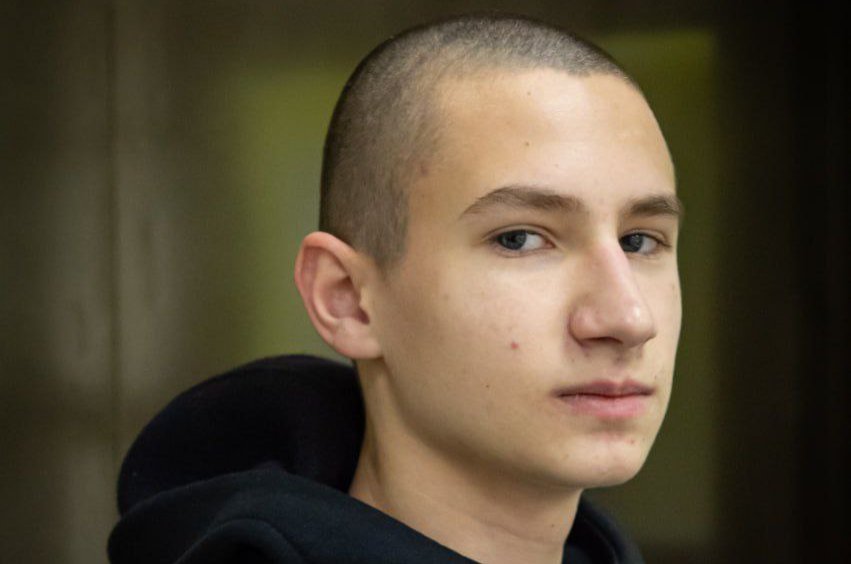
Yegor Balazeykin. Photo: Yegor Balazeykin’s Case Telegram channel
Yegor Balazeykin, a 17-year-old schoolboy from St. Petersburg, was sentenced to six years in a juvenile detention centre on Wednesday on terror charges after he threw a Molotov cocktail that failed to ignite at a military recruitment office.
Besides still being a minor, Balazeykin also suffers from autoimmune hepatitis, an incurable disease that has begun to worsen significantly in the nine months he has now spent in detention.
We publish Yegor’s closing words to court:
“My dear mother has asked for me to be acquitted. Everything she said was correct, but I disagree with her on one thing.
I’m not asking to be acquitted. I have nothing to justify myself for. I justify myself to me, and my conscience can judge me.
We will be redeemed in the next world. Whether it’s six or eight years doesn’t matter.”
“Different people have always said, while I was still at home, and free, that we just had to be patient, and wait a bit, and things would be much better for all of us Russians. My first question is: will they? It’s been almost two years now. My parents live in a little old house. I kept trying to understand the relationship between the bombed out city of Mariupol and my old house.”
“I was recently wondering if there was a relationship between progress in Ukraine and the well-being of Russians back home? Will I be able to live in this ‘new house’ if I know what it’s built on? What sort of foundations do we have? Not for all Russians, for me. Can we renovate cities, open sports facilities, if the price we have to pay for that is life?”
“That date — 24 February [when the war began] — is more important to me now than my birthday. I will be given a sentence now, and I understand what I am being imprisoned for: I really am guilty of something. I am guilty of indifference. At the beginning [of the war], I didn’t care, and, you know, that’s worse [than supporting the war]. People react to me in various ways at the detention centre. Many are negative, but even a negative reaction is better for me than none.”
“Had I known what would happen to me, to the people closest to me, then I wouldn’t have stood on the sidelines on 24 February. I would have gone up to my parents and said, ‘We are all together, the whole family, nobody can divide us, but in six months we’ll be going to Dmitry’s funeral together.’” (Balazeykin’s uncle, who died in the war in Ukraine).
“I want to say a few more words to my parents. It used to tear me apart in the past when you didn’t understand me. I went to Dmitry’s funeral with you and supported you, and then went straight to the military enlistment office.”
“People might think you forced me to take a stand, but those who know me know how I’ve fought with you to demonstrate that you don’t have to be a monster, you have to be human. Now I want to say I’m proud of you, [turning to his mother], because dealing with all this, helping me, supporting me. I don’t know if I could do that.”
“I will end with Tolstoy, who for some reason we have forgotten in this country. No, we haven’t forgotten him, we just have no use for him now, because he was a pacifist.
‘The fact of the deadly work having been commenced is an unanswerable argument in favour of war. War has been begun, and therefore it should go on.’
If you love and respect me at all, I ask you to do just one thing: when you are alone, ask yourself: ‘Do you still need this war?’”
Join us in rebuilding Novaya Gazeta Europe
The Russian government has banned independent media. We were forced to leave our country in order to keep doing our job, telling our readers about what is going on Russia, Ukraine and Europe.
We will continue fighting against warfare and dictatorship. We believe that freedom of speech is the most efficient antidote against tyranny. Support us financially to help us fight for peace and freedom.
By clicking the Support button, you agree to the processing of your personal data.
To cancel a regular donation, please write to [email protected]
